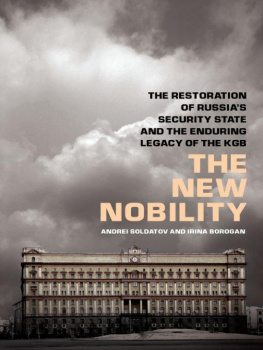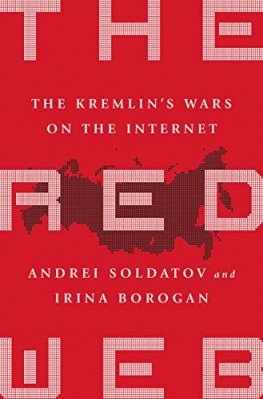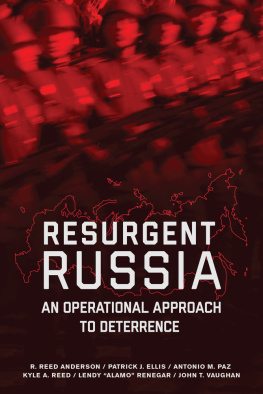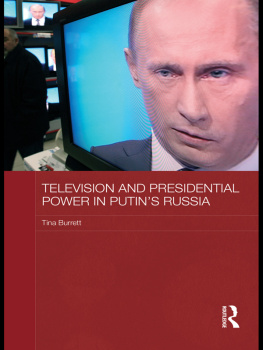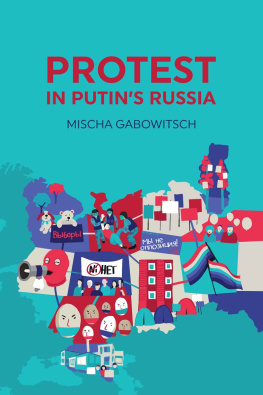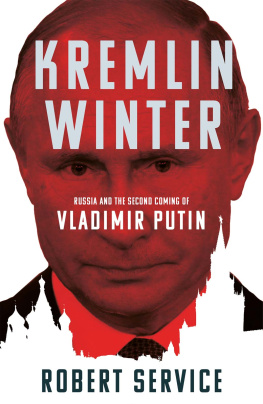Copyright 2015 by Andrei Soldatov and Irina Borogan.
Hachette Book Group supports the right to free expression and the value of copyright. The purpose of copyright is to encourage writers and artists to produce the creative works that enrich our culture.
The scanning, uploading, and distribution of this book without permission is a theft of the authors intellectual property. If you would like permission to use material from the book (other than for review purposes), please contact permissions@hbgusa.com. Thank you for your support of the authors rights.
PublicAffairs
Hachette Book Group
1290 Avenue of the Americas, New York, NY 10104
www.publicaffairsbooks.com
@Public_Affairs
Originally published in hardcover and ebook in September 2015
First Edition: August 2017 First Trade Paperback Edition
Published by PublicAffairs, an imprint of Perseus Books, LLC, a subsidiary of Hachette Book Group, Inc.
Print book interior design by Cynthia Young
Library of Congress Cataloging-in-Publication Data Soldatov, Andrei
The red web : the struggle between Russias digital dictators and the new online revolutionaries / Andrei Soldatov and Irina Borogan.
First Edition.
pages cm
Includes bibliographical references and index.
ISBN 978-1-61039-57-3-1 (hardcover)ISBN 978-1-61039-574-8 (electronic)
1. InternetPolitical aspectsRussia (Federation) 2. Information societyPolitical aspectsRussia (Federation) 3. InternetAccess controlRussia (Federation) 4. Electronic surveillanceRussia (Federation) 5. Freedom of informationRussia (Federation) 6. Russia (Federation)Politics and government1991I. Borogan, I. (Irina) II. Title.
JN6695.A55A859 2015
303.48330947dc23
2015015850
ISBNs: 978-1-61039-573-1 (hardcover), 978-1-61039-574-8 (electronic),
978-1-61039-957-9 (paperback)
LSC-C
E3-20170715-JV-NF
CONTENTS
Navigation
Information wants to be free.
Futurist Stewart Brand
This is not a phone conversation.
a Russian expression meaning a wish to discuss something in person because somebody else might be listening
I n an otherwise residential district of southwest Moscow, a nineteen-story gray-and-white high rise, surrounded by a modest fence, could at first glance be mistaken for an average apartment block. But there is something odd about it: Only twelve of the floors have windows.
This building is the heart of the Russian Internet: phone station M9, containing a crucial Internet exchange point known as MSK-IX. Nearly half of Russias Internet traffic passes through this structure every day. Yellow and gray fiber-optic cables snake through the rooms and hang in coils from the ceilings, connecting servers and boxes between the racks and between floors. Google rents an entire floor on M9 so to be as close as possible to the Internet exchange point of Russia. Each floor is protected by a thick metal door, accessible only to those with a special card.
On the eighth floor is a room occupied by the Federal Security Service, or Federalnaya Sluzhba Bezopasnosti, or the FSB, the main successor organization to the KGB, but the FSBs presence is evident on all the floors. Scattered among the communications racks throughout the building are a few electronic boxes the size of a video player. These boxes are marked SORM, and they allow the FSB officers in the room on the eighth floor to have access to all of Russias Internet traffic. SORM stands for the Russian words meaning operative search measures. But, essentially, its a back door.
SORM boxes once intercepted just phone calls. Now they monitor e-mails, Internet usage, Skype, cell phone calls, text messages and social networks. It is one of the worlds most intrusive listening devices, and it is the Russian governments front line in a monumental battle for the future of the Internet.
This book is a journey through this conflict as it has unfolded in Russia throughout a quarter century of tumult following the collapse of the Soviet Union, which sought to put information in a kind of prison, to the emergence of a new Russia. The book shows that in some ways, Russia did not break entirely with its Soviet past; the SORM boxes, invented by the KGB, have been constantly updated ever since and are used to this day against political opposition. In other ways, however, Russia has become an entirely new country of digital activists who have learned to use the Internet to elude government control and spread uncensored information. In 1991 Russia inherited a dysfunctional and broken communications system with barely a connection abroad, and today it stands in the top ranks of those developing countries that are wired to the world. In a global survey by the Pew Research Center, 73 percent of those questioned in Russia said they had online access, compared to 63 percent for China and 87 percent in the United States. Our book is an investigation into these two great forcessurveillance and control on one side, and freedom on the otherand what happens when they collide. It does not yet have a definitive ending.
The significance of these events extends far beyond Russia, and not only because the Kremlin has repeatedly attempted to change the global rules of the Internet, to build national frontiers in what today is a wide open space. The events of 2016 proved that Kremlin cyber operations abroad could not be ignored.
We have interviewed dozens of participants in the events described and examined thousands of pages of documents. In a nation with a strong tradition of secrecy, even today, it is very difficult to find the truth or people to talk about it. This wall of silence became more pronounced after President Vladimir Putin returned to power in 2012 in the face of popular protests and tightened the flow of information by introducing new laws and practices of censorship and intimidation.
Part I of the book covers the Soviet collapse and the nearly two decades leading up to the Moscow protests of 20112012. Part II takes a closer look at some of the forces driving the conflict and what has happened since Putins return and the outbreak of violence in Ukraine. In 2016, it became increasingly clear that the Kremlin tried to export the tactics it uses against the opposition to other countries. For this edition, we have added an entirely new chapter about the hacking attack in the United States during the presidential campaign. As co-authors, we wrote the book together and refer to ourselves in the narrative by our first names. We researched and wrote this book not only as journalists but also as participants in the events we chronicle, as well as products of both the last of the Soviet years and the digital revolution itself.
I n January 1950 Abram Trakhtman, a thirty-two-year-old major of the Ministry of State Security, a forerunner of the KGB, faced a personal crisis that threatened his entire career in Stalins secret police. For days he had sat alone in his office, located in a three-story, red-brick building in the small village of Marfino, northeast of Moscow.
The building on the compound was first erected in 1884 for a Russian Orthodox Church seminary. In the early 1920s, after the Bolshevik Revolution and the rise of an officially atheist state, the seminarians were expelled. The seminary was turned into a prison for adolescents. Then, in the 1940s, it was transformed again.
At that point the village of Marfino had just one cobblestone road. Bus no. 37 from city center stopped there twice an hour. In 1947 large walls were erected around the building and the former seminary was transformed into a Soviet secret research facility. It was named Object Eight and known informally as the


